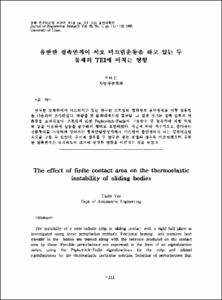Challenged Ballots in U.S. Union Representation Elections
- Abstract
- 이 논문에서는 미국에서의 노동조합 대표권 선거에서 나타나는 무효표의 처리과정과 무효표수에 영햐을 주는 요인을 분석한다. 노동조합 대표권 선거과정과 결과에 관해서는 많은 연?린? 있으나 투표과정에 대한 연구는 매우 드물다. 이 논문에서는 미국 철강노조와 전자노조의 대표권 선거과정에서 나타나는 무효표의 수가 어떠한 요인에 의하여 결정되는가를 선거와 관련된 각 노동조합 내부의 제도적 변수들과 회사가 위치하고 있는 지역의 경제상황 변수 그리고 법적 규제 등의 변수를 독립변수로 하여 회귀분석하였다. 회귀분석의 결과, 두 노동조합 모두에서 제도적 변수들은 무효표의 결정에 일관적으로 영향을 주는 반면, 경제변수들은 노동조합에 따라 그리고 국가경제의 부침에 따라 매우 다른 영향을 준다. 이러한 결과는 노조대표들이 지역경제상황에 따른 일관성있는 선거전략을 세우고 집행하는 데 어려움을 주게 되어 궁극적으로는 노조원확보전략에 차질을 가져오며, 노조대표권에 대한 고용주의 소송을 증가시키는 요인으로 작용한다.
In this paper we consider the determinants of challenged ballots in U.S. union representation election. Though there are studies of the union representation election process and the outcomes of these elections, analyses of the balloting process are rare. Our empirical focus is upon two unions, the United Auto Workers (UAW) and International Brotherhood of Electrical Workers (IBEW), and the local or community determinants of challenged ballots. This approach reflects the institutional context and the geographical scale of representation elections. Based upon the results of regression analysis for economically contrasting two years of 1978 (boom) and 1982 (worst recession since the Great Depression), it is argued that the institutional setting of an election (including unit size and competition between unions for representation) is very important for understanding the determinants of challenged ballots.
In this paper we consider the determinants of challenged ballots in U.S. union representation election. Though there are studies of the union representation election process and the outcomes of these elections, analyses of the balloting process are rare. Our empirical focus is upon two unions, the United Auto Workers (UAW) and International Brotherhood of Electrical Workers (IBEW), and the local or community determinants of challenged ballots. This approach reflects the institutional context and the geographical scale of representation elections. Based upon the results of regression analysis for economically contrasting two years of 1978 (boom) and 1982 (worst recession since the Great Depression), it is argued that the institutional setting of an election (including unit size and competition between unions for representation) is very important for understanding the determinants of challenged ballots.
- Issued Date
- 1996
- Type
- Research Laboratory
- Alternative Author(s)
- 김재홍
- Publisher
- 사회과학논집
- Language
- eng
- Rights
- 울산대학교 저작물은 저작권에 의해 보호받습니다.
- Citation Volume
- 5
- Citation Number
- 3
- Citation Start Page
- 207
- Citation End Page
- 224
- Appears in Collections:
- Research Laboratory > Journal of social science
- 파일 목록
-
-
Download
 000002024587.pdf
기타 데이터 / 430.25 kB / Adobe PDF
000002024587.pdf
기타 데이터 / 430.25 kB / Adobe PDF
-
Items in Repository are protected by copyright, with all rights reserved, unless otherwise indicated.